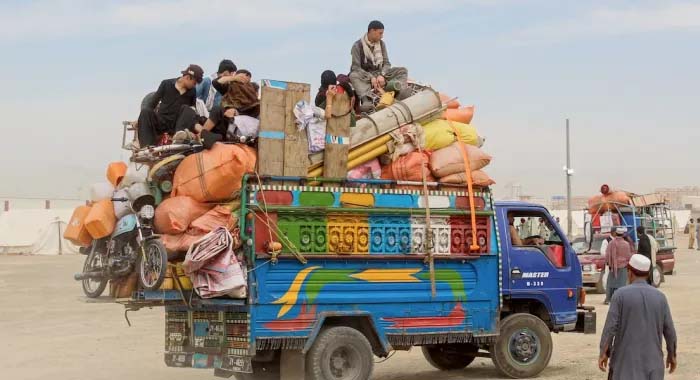The Punjab government has launched the third phase of the repatriation operation against illegal Afghan nationals, transferring 123 more individuals to holding centres for deportation. The move comes as part of a broader national effort to enforce immigration laws and uphold Pakistan’s security and sovereignty.
According to official data cited in Dawn, the Punjab government, under the Illegal Foreigners Repatriation Plan (IFRP), has repatriated approximately 42,913 Afghan citizens since April 1, 2025. The ongoing operation targets those without valid residence documents or those who have overstayed their visas by more than a year.
At present, 46 active holding centres are functioning across the province, including five in Lahore, where illegal residents are held temporarily before being transported to the Torkham border for return to Afghanistan.
Inspector General of Punjab Police Dr Usman Anwar said that police across the province remain on high alert to ensure the repatriation process proceeds efficiently and in line with international legal standards. “Punjab Police is ensuring strict implementation of government directives while maintaining respect for human dignity and the rights of all individuals involved,” he said, adding that the police have so far deported 21,805 Afghan and other foreign nationals residing illegally in Punjab.
Dr Anwar noted that the government’s policy aims to balance humanitarian responsibility with national security imperatives, stressing that Pakistan’s laws will be applied uniformly.
Punjab Home Secretary Dr Ahmad Javed Qazi said that following the closure of the Kot Chandna camp in Mianwali the last remaining Afghan refugee camp in Punjab—the province no longer hosts any operational refugee settlements. “Afghan nationals apprehended by law enforcement agencies are kept in district-level holding centres, where they are provided accommodation, food, and other basic necessities by the Punjab government through respective deputy commissioners. From there, they are transported to the Torkham border at government expense,” he explained.
Dr Qazi reaffirmed the government’s stance that all Afghan citizens must leave Pakistan unless they possess valid visas, emphasizing that the policy will be enforced consistently across all districts.
The federal government recently dismantled all remaining Afghan refugee camps in the country, including one in Mianwali, four in Khyber Pakhtunkhwa, and ten in Balochistan, after the majority of undocumented Afghan nationals were repatriated.
According to the United Nations High Commissioner for Refugees (UNHCR), more than 3.5 million Afghans are currently living in Pakistan, about 700,000 of whom arrived after the Taliban’s takeover in 2021. Nearly half are without legal documentation.
While reaffirming Pakistan’s decades-long hospitality toward Afghan refugees, officials maintained that the growing number of undocumented individuals now poses serious national security challenges and strains public services across the country.





